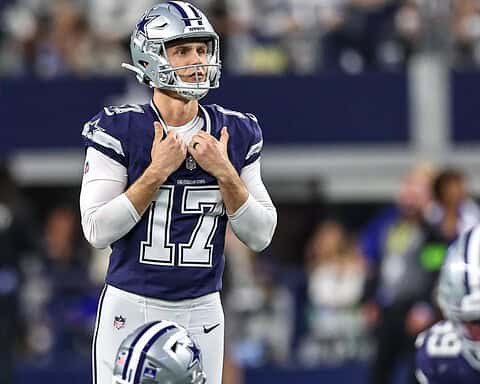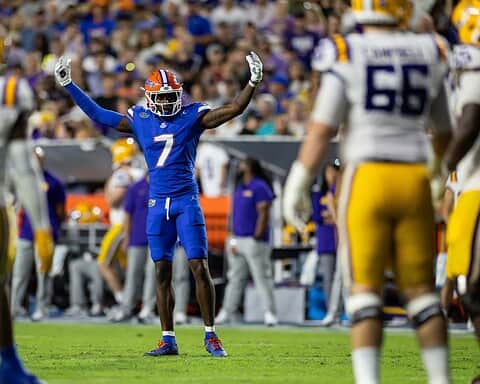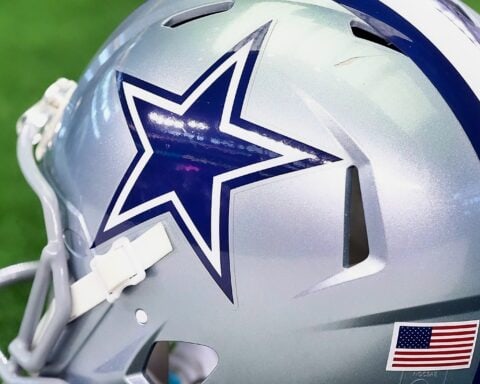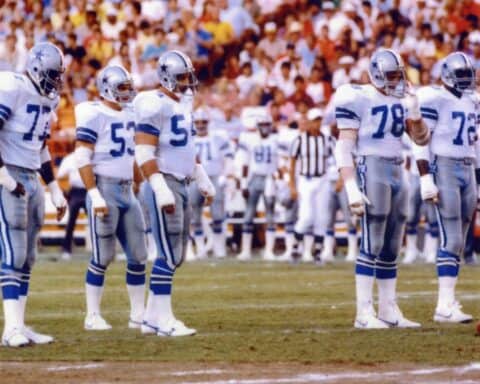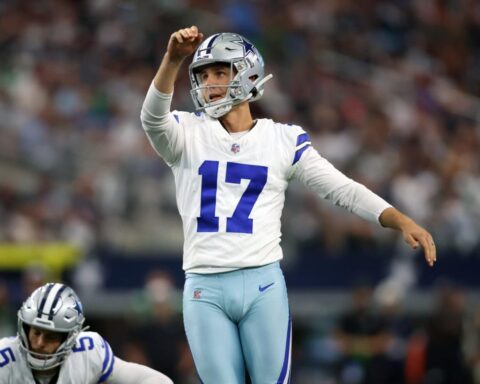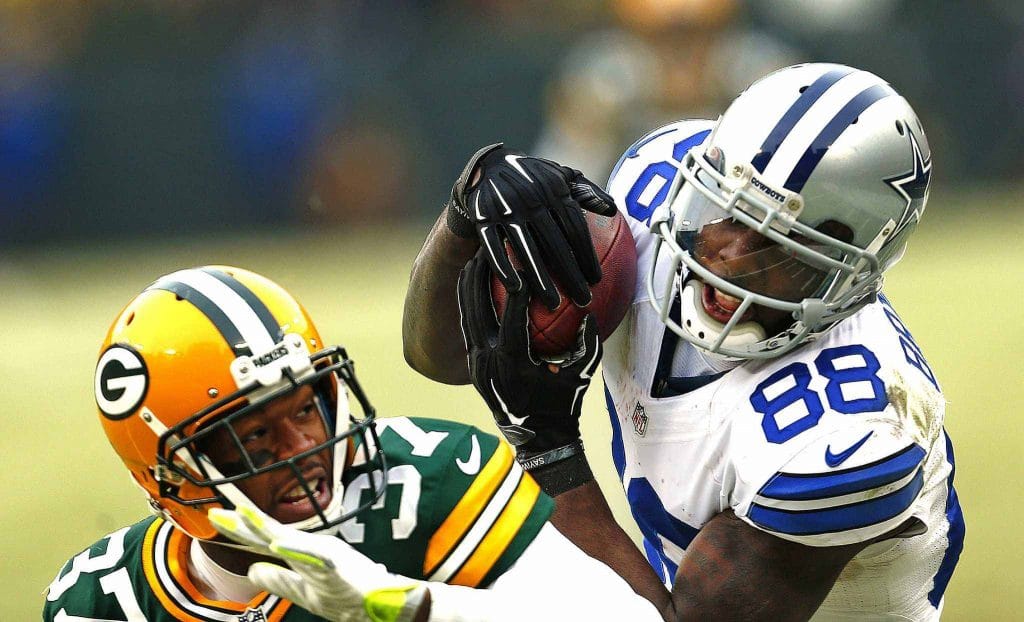The NFL poached one major rule from the spring football leagues – and it’s a big one. Starting this year, the NFL has adopted the kickoff format first used by the XFL – now the UFL after that league merged with the USFL this year.
We haven’t even played a preseason game yet and the changes are already making an impact.
But first, here are the new NFL rules on kickoffs:
- The ball will be kicked from the kicking team’s 35-yard line.
- The other 10 players on the kick coverage team will line up at the opposing team’s 40-yard line.
- The returning team must have at least seven players in the “set-up zone” between their own 30 and 35-yard lines.
- There is a landing zone between the goal line and the 20-yard line that the ball must be kicked into. A max of two kick returns can be in the landing zone.
- Once the ball is kicked, the kicker cannot cross the 50-yard line, and the other players on the kicking team cannot cross the 40-yard line until the ball is touched or lands in the landing zone. The receiving team’s players in the set-up zone can also not move until then.
- If the kick sails into the end zone, the receiving team will get the ball at the 30-yard line. If the kick is touched or hits short of the landing zone, the ball is brought out to the 40-yard line.
- Fair catches on kickoffs are not allowed.
Some Kickers Sidelined?
The rule change appears to have benched Chiefs’ kicker Harrison Butker from his job on kickoffs. He’ll still kick the extra points and field goals but Kansas City’s special teams coach, Dave Toub, has speculated on having safety Justin Reid handle the kickoffs.
Reid himself is on record as saying he thinks the job is his.

In a way, the move makes sense. There will be more kickoff returns now.
Having 11 players who can tackle on the field is a plus instead of 10 guys and a player who just hopes to get in the returner’s way.
In Kansas City’s case, the move will only pay off if Reid can be accurate on his kicks. In 2022, he was 1-for-2 on extra points. Five of his seven kickoffs went for touchbacks.
So he can kick the ball without embarrassing himself.
Rams’ head coach Sean McVay has predicted that the adjustment for and impact of the rule change is “going to be wild.”
He’s likely not wrong.
Impact On The Dallas Cowboys
For now, it appears Brandon Aubrey will continue to handle kickoffs for the Cowboys.

Aubrey’s biggest strength last year was his ability to bomb the kick deep into the endzone for a touchback. This year, his focus will be on placing his kicks in the landing zone.
Aubrey was a soccer player before making the move to American football, so those skills might be to his advantage in the transition to the new NFL kickoff rules.
The biggest benefactors under the new rules will be KaVontae Turpin and Deuce Vaughn. Under the new rules, you can have two returners. The threat of either being able to break through the chaos of the other 20 players all tangled up in the same general area cannot be understated.
And if either does break through the line, they’ll be uncatchable.
While the exact impact of the rule change remains to be seen, it should be an advantage for Dallas. The Cowboys’ special teams coach was a major proponent of the change.
John Fassel is one of the best in the business when it comes to special teams.

No doubt he already has a whole deck of aces up both sleeves as he schemes under the new format.
Impact On Officiating
One interesting side-effect to be seen will be the officiating.
How many huge kickoff returns have we seen erased by the dreaded “illegal block in the back” call?
With the teams much closer together at the kick, it seems likely those calls will go away. However, don’t be surprised to see an increase in holding calls at the same time.
The zebras just love throwing those yellow hankies.
Impact On The Fans
Primarily, it will make the kickoffs more entertaining.
The league had been seeing declining return rates as kickers became able to boom their kicks through the endzone.
That option no longer exists.

For those of us who grew up watching the likes of Billy “White Shoes” Johnson, and those of us who also enjoyed Devin Hester’s more recent playing days, that’s a good thing.
So, more chances to see touchdowns or big plays. And for fantasy football players, more reason to focus on special teams.
This rule change, aside from the impact on the league’s kickers, appears to be a win-win for everyone.



